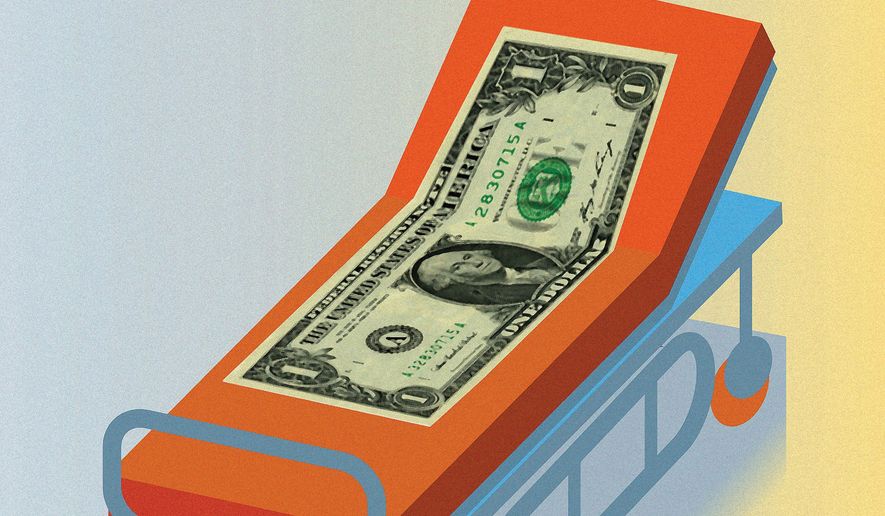OPINION:
Here we are again arguing to pay the doctors.
It’s not an easy argument to make. They are the most important figures in our health care system but the least sympathetic. They’re rich, right? Why not give everyone else a bump before we pay the doctors any more to cover their increased expenses?
But the key to keeping Medicare operating, particularly in rural and underserved areas, is to ensure the doctors continue to be paid appropriately.
At this point, it’s hard to determine what all we learned from the COVID-19 pandemic, but we did learn one thing for sure: Care for seniors and people with disabilities depends on Medicare, and Medicare relies on those physicians to deliver that care.
One might think policymakers understand this and stand ready to support the people who risked and sacrificed so much to get us through the pandemic. But one would be wrong.
In fact, unless Congress acts soon, flawed federal policy will result in a 4.42% cut to the Medicare physician fee schedule payments starting in 2023. A cut of that amount is likely to force some smaller physician practices to close or consolidate with larger systems, which would mean less access for their patients, longer drive and wait times, and other barriers to care.
A 4.42% reduction in payments for Medicare physician services would only compound the challenges that have put the Medicare physician reimbursement schedule on an unsustainable path.
When adjusted for inflation, Medicare physician payments have dropped by 22% from 2001 to 2021, according to data from the American Medical Association. Moreover, an ongoing freeze in annual Medicare payments is scheduled to last until 2026, at which point physicians will receive only a tiny 0.25% annual boost, which doesn’t even cover sky-high inflation rates.
To make matters worse, it’s not that Congress can’t help. It has helped literally every other class of provider for Medicare to receive payment increases. Hospitals, hospices, nursing facilities, equipment providers — they all deserve raises, but somehow, the physicians who went into those consultation rooms with COVID-positive patients at the height of the pandemic, are not considered deserving.
Sympathetic or not, doctors simply can’t absorb such a devastating cut, and patients are going to suffer.
Fortunately, two physician legislators in the House — Reps. Ami Bera, California Democrat, and Larry Buschon, Indiana Republican — have introduced legislation that would at least begin to address this issue. Their bill, the Support Medicare Providers Act (H.R. 8800), would delay the impending 4.42% Medicare payment cut for physician services by a year.
This does not represent the permanent solution that is needed, but it does provide a modicum of relief for physicians while inflation is still soaring and time for Congress and the Centers for Medicare & Medicaid Services to work out a lasting deal.
Throughout the pandemic, physicians have been there — putting in countless hours, enduring separation from friends and loved ones, and risking their own health and safety to treat their patients. The absolute least Congress could do from a policy perspective is to fix the glaring flaws in the Medicare physician payment system to ensure it more accurately reflects the real-life costs of providing care.
Passing H.R. 8800 won’t fix everything that’s wrong with this broken system, but it will at least show that our legislators recognize the problems and are committed to solving them.
• Brian McNicoll, a freelance writer based in Alexandria, Virginia, is a former senior writer for The Heritage Foundation and former director of communications for the House Committee on Oversight and Government Reform.




Please read our comment policy before commenting.